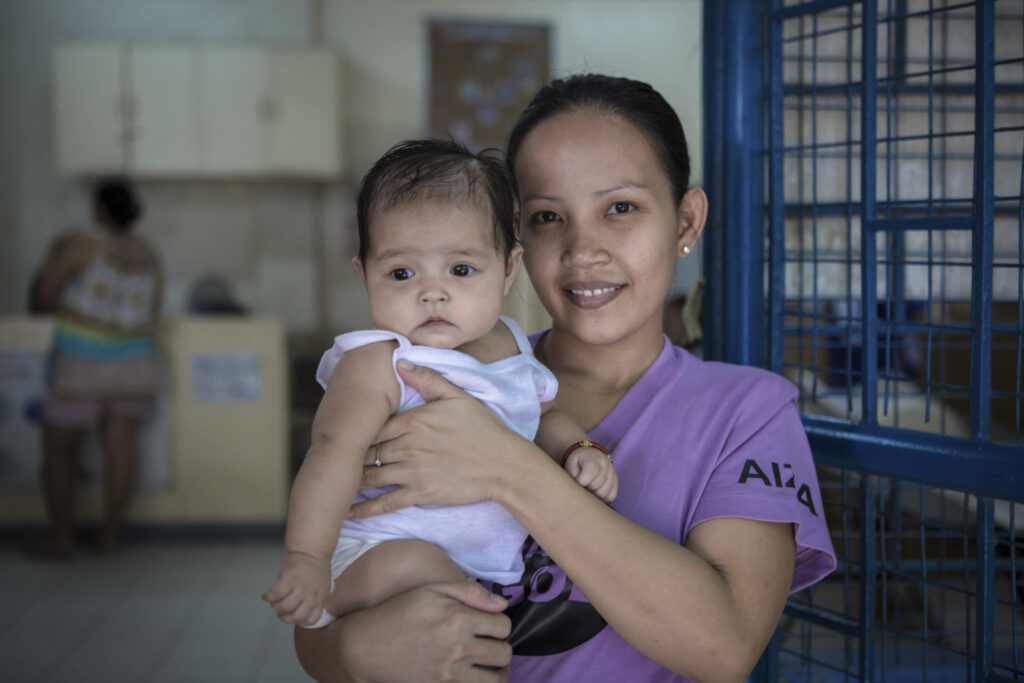Since 2015, ARCH has investigated how commercially produced foods for infants and young children are promoted in various countries and settings. Our research was sparked by a growing concern that optimal infant and child feeding practices – such as exclusive breastfeeding for the first six months – are increasingly undermined by the inappropriate and aggressive marketing of breastmilk substitutes (milk formula) and other commercial foods.
A new report published by Save the Children UK is now bringing this issue to the forefront. New analysis found that six companies- which together represent over 50% of the global milk formula market- are failing to adhere to the International Code of Marketing of Breast-milk Substitutes (the WHO Code), passed by World Health Assembly nearly 40 years ago.
The Code prohibits companies from advertising milk formula to the public, or from having direct or indirect contact with pregnant women or mothers of infants and young children. Yet, most companies openly violate the Code or find ways around it. Research conducted in Tanzania, Cambodia, Nepal, and Senegal by ARCH is in line with the findings in this report. For example, 86% of mothers interviewed in Cambodia mentioned seeing, hearing, or reading a promotion for breastmilk substitutes. This is despite Cambodia’s strong laws to protect breastfeeding and restrict promotion of these products.
The report underscores the threat posed by a booming milk formula industry. The global baby food market, worth $15 billion in 1998, is expected to reach $70.6 billion by 2019. Its rapid growth has been supported by significant spending by the leading international producers to promote their products. Save the Children estimates that global marketing expenditures may have been as high as $7.2 billion in 2015. This dwarfs public health budgets that support and encourage breastfeeding. While milk formula has an important role to play for many families, we believe that its marketing should never play a part in how babies and young children are fed.
Yet, the inappropriate marketing of milk formula is just the tip of the iceberg. Companies consistently make misleading or inaccurate claims about their products. Many have likened milk formula to breastmilk; some have even claimed that milk formula is “richer” in nutrients than breastmilk. The report also points to another concerning practice – the cross promotion of follow-on formulas and growing-up milks – products which the WHO has said are both unnecessary and unsuitable as a substitute for breastmilk. As ARCH has noted, this practice causes confusion for parents and can have a negative impact on breastfeeding.
As more evidence comes to light, it is clear why instruments such as the WHO Code and subsequent World Health Assembly resolutions are so vitally critical. In recent months, concerns have been raised about the safety of baby formula as well as the nutritional claims made by one of the world’s largest manufacturers. In a few months, the Access to Nutrition Index will publish the 2018 Global Access to Nutrition index which will assess the marketing practices of the six baby food makers included in this Save the Children report .
Advocates now have a set of powerful tools and evidence to call for stronger national codes, improved compliance and better monitoring and enforcement. We are working in Cambodia, Nepal, Senegal and Indonesia to ensure governments have the data they need to develop and improve policies that protect infant and young child nutrition.
The time has come for companies to curb the aggressive promotion of milk formula and other foods for young children. Governments must also take steps to hold companies accountable for violating laws that restrict such marketing. Failure to do so will put more children at risk for malnutrition, obesity, and chronic disease later in life.
Photo Credit: Chloe White/Save the Children
Aiza, 26, with Ziana, 3 months. When Ziana was first born, Aiza had to use formula as she didn’t have enough milk. Now however, she has enough and is able to breastfeed. She gave formula milk to her eldest daughter AJ who is 6, and has noticed that AJ gets sick and tired more often then her siblings who were breastfed.

